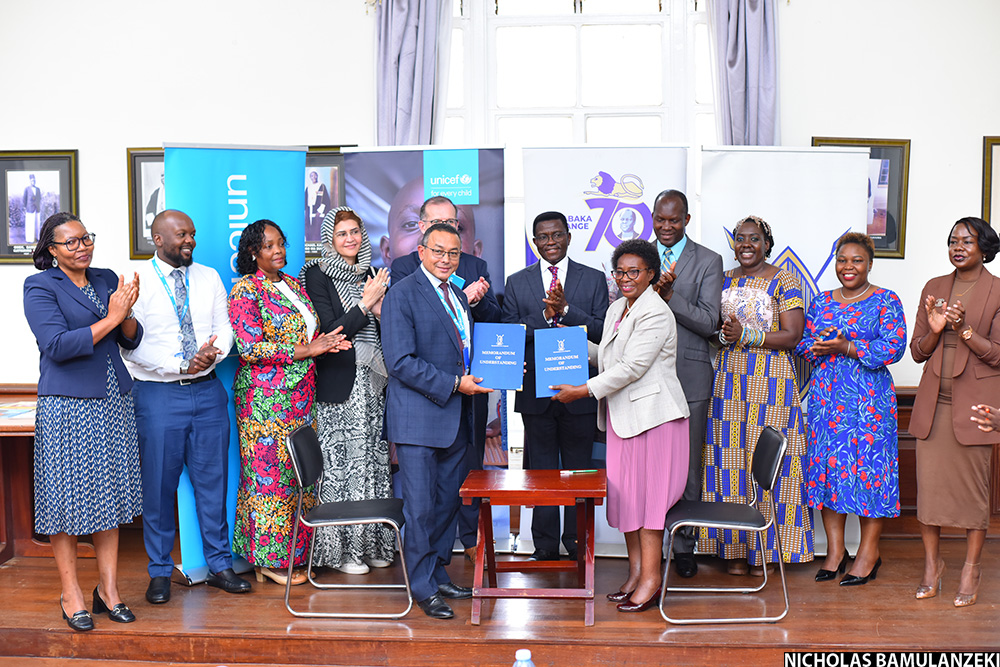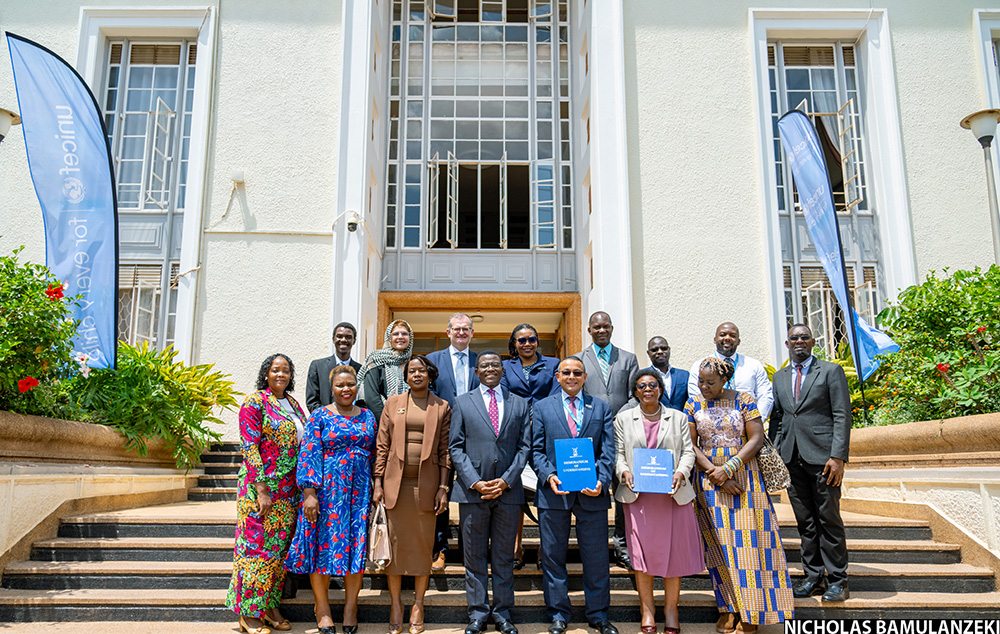New partnership promises brighter future for 4.2 million children in Buganda
The agreement, signed through the Buganda Investment and Commercial Undertaking Ltd (BICUL), marks the beginning of a comprehensive collaboration aimed at securing the health, education, and protection of every child in the region.
New partnership promises brighter future for 4.2 million children in Buganda
_________________
A total of 4.2 million children in Buganda are to have their rights and well-being improved following a landmark partnership between the Buganda Kingdom and the United Nations Children’s Fund (UNICEF), sealed through a Memorandum of Understanding (MoU) signed at the Buganda Parliament on Wednesday, November 12, 2025.
The agreement, signed through the Buganda Investment and Commercial Undertaking Ltd (BICUL), marks the beginning of a comprehensive collaboration aimed at securing the health, education, and protection of every child in the region.
Rooted in the traditional value of working together for the common good, the partnership blends cultural heritage with a shared commitment to the principles of the Convention on the Rights of the Child.
Building a brighter future
By combining the kingdom’s deep community connections and cultural influence with UNICEF’s global expertise, the initiative is designed to create lasting, positive change.
It seeks to ensure that every child not only survives but thrives and reaches their full potential.
Speaking at the signing event, the Prime Minister (Katikkiro) of Buganda, Charles Peter Mayiga, underscored the significance of the collaboration.
“The way a community takes care of its children is how its future can be determined,” he said.
“A child is the foundation of adulthood, and we see our responsibility as absolute. We value this collaboration with UNICEF immensely because it enables us to comprehensively ensure child health and nutrition, keep children in school, and protect them from violence.”
Focus areas for action
The MoU outlines four priority areas where joint efforts will be concentrated. The partnership will advance child survival through expanded immunisation, and the Kingdom will share life-saving information that combats preventable diseases and malnutrition.
It will promote quality education by removing barriers for vulnerable learners, strengthening early childhood development, supporting re-enrolment campaigns, and empowering the Kabaka Youth Councils.
On child protection, the partnership will work to end abuse, violence, child marriage, and adolescent pregnancies while improving birth registration systems and engaging traditional leaders to safeguard children’s rights.
It will also foster behaviour change and uplift children’s voices by creating platforms for young people to advocate for their rights and challenge harmful social practices.
The scale of violence against children
Despite progress in child protection, violence against children in Uganda remains widespread and deeply entrenched.
According to Raising Voices Uganda, children continue experiencing violence at home, at school, and in the community. They suffer physical and mental health consequences as a result.
National data further shows that many young girls face early marriage and teenage pregnancy, with about a third married before the age of 18 and one in four aged 15–19 already pregnant or mothers.

The International Labour Organisation (ILO) reports that the number of children aged 5–17 engaged in child labour has risen sharply from 2.4 million in 2016-2017 to 6.2 million in 2021, with most working in agriculture, often under hazardous conditions.
These realities underscore the need for partnerships like the one between the Buganda Kingdom and UNICEF, which aim to address both the causes and effects of violence, abuse, and neglect.
A shared promise to children
UNICEF Representative Dr Robin Nandy described the agreement as a promise to the children of Buganda and Uganda as a whole.
“We will be a reliable, transparent, and respectful partner, ensuring every resource invested translates into tangible improvements,” he said.
A Joint Steering Committee will guide the implementation of the MoU, developing an action plan, monitoring progress, and documenting successful models that can be scaled up and shared more widely.
Dr Nandy emphasised in his closing remarks that the partnership represents more than an agreement; it is a commitment to every child’s right to a better tomorrow.